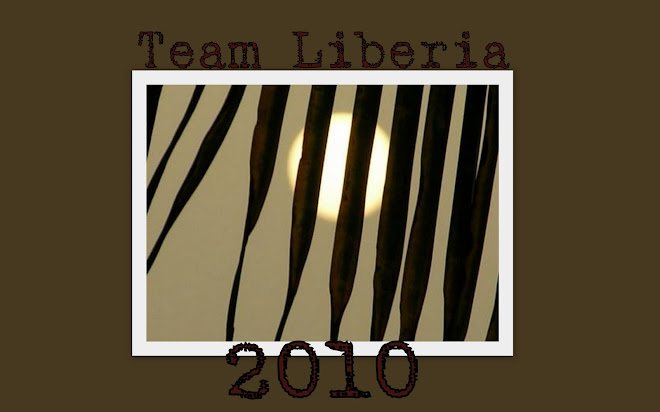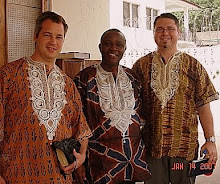The Looting Machine,’ by Tom Burgis
By MICHELA WRONGMARCH 20, 2015
Book Review
Back in the Mobutu era, I worked as a stringer in Kinshasa, the capital of what was then Zaire. “So, what do they want?” my driver Pierre would ask whenever I exited a Western embassy after a chat with a diplomat. “What’s the plan?” His question captured the sense of powerlessness that pervaded the country, a product of Big Man rule, Cold War interference and brutal colonial experience. If there was something of which Pierre felt certain, it was that he was not master of his fate.
Times have changed, but the suspicion African citizens nurse that they are unwitting pawns in someone else’s high-stakes chess game is as justified today as it was then, if Tom Burgis is to be believed. Only now, the shadowy players are not to be found in state rooms in Washington, Moscow, Paris or London. What he describes instead in “The Looting Machine” is a network of anonymous multinationals, corporate investors and bankers who strike opaque deals with coup leaders and precarious African elites that allow them to drain the continent’s natural resources in exchange for precious little — if you’re an ordinary African. Enormous bribes, tax exemptions and the cynical manipulation of the practice known as “transfer pricing,” in which multinationals shift earnings to jurisdictions where they pay less tax, suck the revenues away. “These networks fuse state and corporate power,” Burgis writes. “They are aligned to no nation and belong instead to the transnational elites that have flourished in the era of globalization. Above all, they serve their own enrichment.”
This is a brave, defiant book, for the bleakness of Burgis’s vision jars with the tenor of the times. “Africa Rising” has become the obligatory catch phrase applied to the continent in recent years, a label inspired by the growth of an aspirational African middle class, the invigorating impact of mobile-phone and Internet technology, and growth rates in gross domestic product that European countries can only envy. It is fashionable, these days, to be upbeat about Africa.
Burgis is having none of it. Impressive growth rates, as he points out, often mask staggering inequality. Africa’s astonishing mineral abundance has, counterintuitively, doomed it to economic underdevelopment: The continent’s share of global manufacturing in 2011 was a paltry 1 percent, unchanged since 2000. “The Looting Machine” explores the contours of the infamous “resource curse,” which dictates that the countries appearing to have everything going for them — Angola and Nigeria with their oil, the Democratic Republic of Congo with its coltan and diamonds, Guinea with its bauxite, Niger with its uranium — remain the poorest and worst governed, their local industries wiped out by imports and democratic accountability undermined by the flood of dollars into the coffers of a ruling elite.
The sinister drama described in the book has its antiheroes, the robber barons of our day. One of them is the Israeli Dan Gertler, who befriended Laurent Kabila’s son Joseph in the 1990s. In return for a $20 million war chest contribution, Gertler was awarded a monopoly to buy every diamond dug from the ground in Congo. If the transactions Gertler masterminded have made him a billionaire, Burgis notes that between 2007 and 2012 “just 2.5 percent of the $41 billion that the mining industry generated in Congo flowed into the country’s meager budget.”
Even more intriguing is Sam Pa, a Chinese businessman with “many names and many pasts.” Founder of the shadowy Hong Kong-registered Queensway Group syndicate, Pa has exploited his connections with China’s Communist Party and military to broker complex deals in Angola, the Republic of Congo, Guinea, Sierra Leone and Zimbabwe. So often hailed as Africa’s salvation, China emerges particularly badly from Burgis’s account. While maintaining a fiction of distance between itself and the Queensway Group, he writes, Beijing is busily winning contracts on the syndicate’s coattails that help keep fragile, venal regimes firmly in place.
Burgis, who crisscrossed Africa to gather his material, has a brisk, muscular writing style, but he overestimates the average reader’s appetite for the nitty-gritty of shareholdings and corporate filings, detail that may grip in the heat of an unfolding newspaper investigation but makes eyelids droop when recalled at leisure. The book is at its best when the writer puts percentages and statistics aside and hits the road, interviewing the fishermen, artisanal miners and slum dwellers dispossessed and bankrupted by the deals described.
Frustratingly, Burgis never addresses the question of what can be done to halt — or at least brake — the systematic looting. Perhaps that is an issue he intends to probe in another book, but omitting any hint of a solution feeds into an image of a powerless, victimized continent my Congolese driver would immediately have recognized. It also leaves Burgis vulnerable to a criticism sometimes voiced by African intellectuals, who accuse Westerners denouncing corporate misbehavior on their continent of wanting to keep it locked in a state of preindustrial innocence that chimes with their romantic preconceptions of “the Dark Continent.”
Since Burgis is a reporter for The Financial Times, I rather doubt he harbors such anticapitalist instincts. As he points out, “to mine is not necessarily to loot.” Capitalism isn’t obliged to take the ugly form captured in these pages, and what campaigners want is not disinvestment but responsible engagement. Africa’s future will surely be built on its extractive industry, but the oil, timber and mining deals of the future must be open to scrutiny, produce decent levels of tax, and put national interest before a tiny elite’s greed. That outcome depends on domestic political will. The looting machine relies for its existence on the complicity of African presidents, ministers and members of parliament — once that cozy complicity ends, the lubricating oil will dribble away, and the machine will seize up.
THE LOOTING MACHINE: Warlords, Oligarchs, Corporations, Smugglers, and the Theft of Africa’s Wealth
By Tom Burgis
321 pp. PublicAffairs. $27.99.






